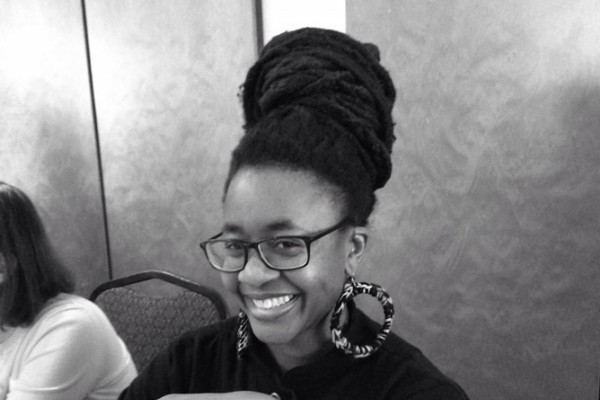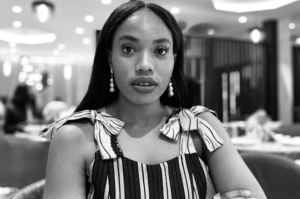Dystopian fiction has become increasingly popular among African readers. The success of such writers as Nnedi Okorafor, Khaled Towfik, Lauren Beukes, and Dayo Adewunmi Ntwari shows that African writers are responding to this interest.
So when Al Jazeera held a talkshow featuring four artist exploring dystopian aesthetic forms: Ron Charles, Marie Lu, Fabrice Monteiro and our very own home girl, the Hugo Award-winning Okorafor, we had our interests piqued.
Titled “The Rise of Dystopian Art,” the show revolved around the definition of dystopian art, how it captures life, and the rather sudden increase in public interest for the genre since Donald Trump’s victory.
The group of artists and writers were assembled to think through the value of dystopian fiction in making sense of the current climate.
On the Definition of Dystopia
Okorafor calls for caution in defining dystopian fiction as apocalyptic. She explains that “the definition of dystopia depends on the group of people.” She sites Nigeria as a place where power outage is an everyday occurrence that doesn’t cause widespread panic when it happens whereas in a place like New York City a sudden and total power outage would plunge the city into chaos. She adds: “I think dystopian literature and post-apocalyptic literature are certainly in conversation with each other. I don’t think you can separate the two but I think that dystopian literature is bigger.”
On Dystopia, Time, and Race
Ron Charles: “White people always think of dystopias as looking forward into this scary future, but black Americans can look back. They’ve already come through their dystopia. They had 200 years of horror and slavery. All the kinds of things we imagine the future dystopia being like are what black Americans already went through.”
On Afrofuturism
Okorafor: “Afrofuturism isn’t always upbeat…A lot of it is in response to the darkness and trying to show the light but a lot of it goes dark… Afrofuturism is very diverse, so pinning it down to being focused on upliftment and being positive is a little short-sighted.”
On Trump
Throughout the talk, references were made to Trump. Okorafor’s read of an excerpt from Octavia Butler’s “Parable of the Sower” that portrays a group of bigots in a dystopian American society attacking everyone who is not their preferred shade of Christian, with the excuse that they are trying to “Make America Great Again”.
She points out that people scrambling to read George Orwell’s 1984 hoping it would tell them something about Trump’s presidency are looking at the wrong place:
“After everything that happened, I’m not reading 1984, I’m not reading Fahrenheit 451, I’m not reading A Handmaid’s Tale. I’m reading Parable of the Sower by Octavia Butler. I feel like if we’re looking for any answers or where we’re going, it’s definitely in Octavia’s work.”
***********
Facebook link image by Fabrice Monteiro










Chizzy Ndukwe N March 07, 2017 12:05
I've been holding out on reading Octavia Butler. Now I must. [SPOILERS AHEAD IF YOU HAVEN'T WATCHED THE VIDEO] Like Marie Lu, that excerpt Nnedi read sent chills down my spine, and that plackard "Octavia Warned Us", got me thinking: writers are the best kind of prophets. They don't just tell you what's gonna happen; they make you feel it through their works so that when it's near, you can find just the right response to it, whether right or wrong. Finally, I pray for America